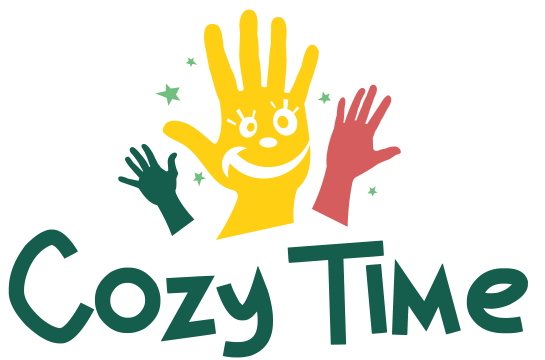Understanding Montessori for Toddlers
In the bustling city of Toronto, the daycare scene is abuzz with a unique form of child-centered learning: Montessori. But what does Montessori mean for your toddler? And why does it matter?
What Montessori Means for Your Toddler
As a young parent, I remember my first encounter with the Montessori method. I was intrigued by how it provided a nurturing environment that allowed toddlers to explore, discover, and learn at their own pace. Montessori activities for toddlers are designed in a way that they are not just playtime, but opportunities for learning.
From a practical standpoint, Montessori materials for toddlers are tactile and hands-on, encouraging little ones to touch, feel, and manipulate. This physical interaction aids toddlers in understanding the world around them, while also developing their fine motor skills. Additionally, incorporating montessori arts and crafts ideas into these activities allows for further exploration of creativity and self-expression. By engaging in art projects that utilize natural materials or everyday objects, toddlers can enhance their cognitive abilities while having fun. This holistic approach nurtures both their imagination and problem-solving skills, creating a well-rounded learning experience.
Why Montessori for Toddlers Matters
Montessori matters because it respects the individuality of each child. It recognizes that no two toddlers are the same and that each one learns at a different pace and in a different way. This is something I learned first-hand when my two children, despite being twins, displayed distinctly different learning styles and paces.
Montessori’s child-centered approach fosters a sense of independence and confidence in toddlers, empowering them to make choices and solve problems on their own. And it’s not just within the walls of a daycare; these skills carry over into their everyday life as well.
Key Concepts of Montessori for Toddlers
The Montessori method is built around several key concepts that guide the activities and interactions in a Montessori environment. These principles are designed to foster growth and development in toddlers. Incorporating hands-on learning experiences, the Montessori method emphasizes independence and self-directed play, allowing children to explore at their own pace. These montessori approaches for preschool readiness not only prepare toddlers for academic success but also nurture their social skills and emotional intelligence. Additionally, the environment is carefully curated to promote curiosity and inspire a lifelong love of learning. Central to this approach is the respect for each child’s individual learning pace and style, allowing them to explore their interests in a structured yet flexible setting. Montessori learning activities for kids emphasize hands-on experiences that promote independence and critical thinking. As children engage in these activities, they develop both social skills and a lifelong love for learning. These concepts emphasize independence, respect for a child’s natural development, and the importance of hands-on learning. Montessori learning activities for kids are carefully curated to engage their curiosity and promote self-directed exploration. By creating a supportive and structured environment, children are encouraged to learn at their own pace, enhancing their cognitive and emotional growth. Central to this approach is the idea of child-led learning, where children are encouraged to explore at their own pace. By providing carefully curated materials and an environment that promotes independence, educators facilitate meaningful engagement with montessori activities for young learners. This hands-on approach not only nurtures curiosity but also cultivates essential life skills that will benefit children as they grow.
Encouraging Independence
One of the key concepts in Montessori is fostering independence. I remember how my son, at the tender age of two, insisted on dressing himself. The Montessori environment at his daycare in Toronto encouraged this determination, providing him with the opportunity to learn and master the skill himself.
Cultivating Concentration
Montessori activities for toddlers are designed to cultivate concentration. One of my daughter’s favorite Montessori materials was a set of wooden blocks. She would spend hours stacking and rearranging them, her focus unwavering. This concentration, nurtured in the Montessori environment, is a skill that will benefit her in many aspects of life.
Fostering Life Skills
Montessori is not just about academic learning; it’s also about fostering practical life skills. From tidying up toys to preparing a simple snack, Montessori play ideas incorporate real-life tasks that help toddlers become self-sufficient.
Instilling Love for Learning
Perhaps the most important concept in Montessori is instilling a love for learning. By allowing toddlers to explore their interests and learn at their own pace, they develop a positive association with learning that can last a lifetime.
To learn more about how Montessori can benefit your toddler, feel free to contact us at Cozytime Child Care. As a licensed Montessori Center in Toronto, we’re here to answer all your questions. Reach out to us at (416) 602 3811.
Montessori Activities for Toddlers at Home
Once upon a time, in the bustling city of Toronto, a daycare called Cozytime Child Care embarked on a journey to revolutionize early childhood education with Montessori principles. The story takes an interesting turn when parents started incorporating these principles at home. Here are some Montessori activities that can be easily undertaken at home.
Sensory Play Activities
I fondly remember introducing my son to sensory play activities. His face lit up as he played with different textured materials, each providing a new experience. From the softness of cotton balls to the roughness of sandpaper, he was engrossed, enhancing his tactile senses. You could recreate the same magic by arranging for Montessori sensory bins filled with items like rice, beans, or water beads.
Practical Life Activities
My neighbour, a Montessori educator at Cozytime, once shared how she encourages her toddler to participate in everyday tasks. Something as simple as pouring water into a glass or peeling a banana can be a practical life activity. These activities encourage fine motor skills and promote independence among toddlers.
Motor Skill Activities
Remembering how my daughter loved the challenge of stacking wooden blocks brings a smile to my face. Such activities not only kept her engaged but also developed her gross motor skills. You could also introduce playdough for squishing and rolling, or puzzles for picking and placing pieces, to enhance your toddler’s motor skills.
How to Create a Montessori-Friendly Environment at Home
After experiencing the Montessori magic at Cozytime daycare, I was inspired to transform my home into a Montessori-friendly space. Here’s how you can do it too.
Setting Up the Space
My first step was to declutter and organize the space. Remember, a Montessori environment is all about accessibility. I placed child-sized furniture and ensured that toys and books were within my child’s reach. This setup empowered my child to choose what he wanted to do, fostering decision-making skills.
Choosing Appropriate Montessori Materials
In my quest to create the perfect Montessori home, I discovered that the key was to choose age-appropriate and interactive materials. I included items that stimulated curiosity and creativity, like shape sorters, puzzles, and tactile boards.
Navigating the Challenges of Montessori for Toddlers
As rewarding as the Montessori journey can be, it does come with its share of challenges. However, with patience and persistence, these can be overcome.
Maintaining Consistency
Consistency forms the backbone of Montessori learning. When we first introduced Montessori methods in our home, it was a struggle to maintain consistency. However, with a bit of planning and determination, we were able to integrate the Montessori way of life into our daily routine.
Dealing with Frustration
Frustration is a natural part of any learning process. When my toddler first started Montessori activities, there were moments of frustration. But we learned to take a step back, offer gentle guidance, and let him find his own solutions. This approach helped him develop problem-solving skills.
Balancing Independence and Safety
While Montessori encourages independence, ensuring toddler safety was a fine balancing act. We childproofed the home, but also allowed room for learning from minor mistakes, like a spill from pouring water independently.
Now that you have a glimpse of the Montessori way of life, are you ready to embark on this enlightening journey? For more guidance or to enroll your child in our daycare, contact us at Cozytime Child Care on 416-602-3811.

